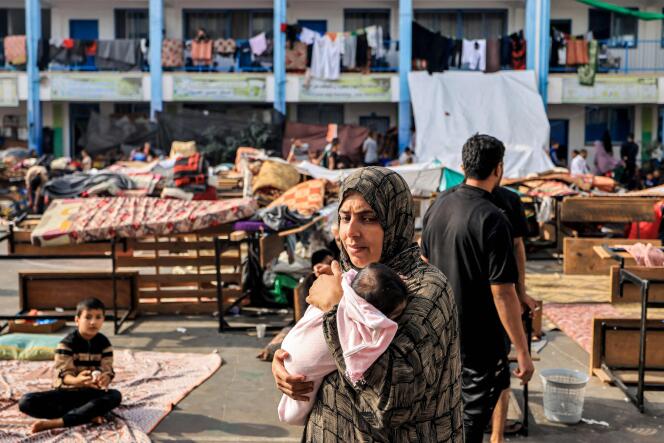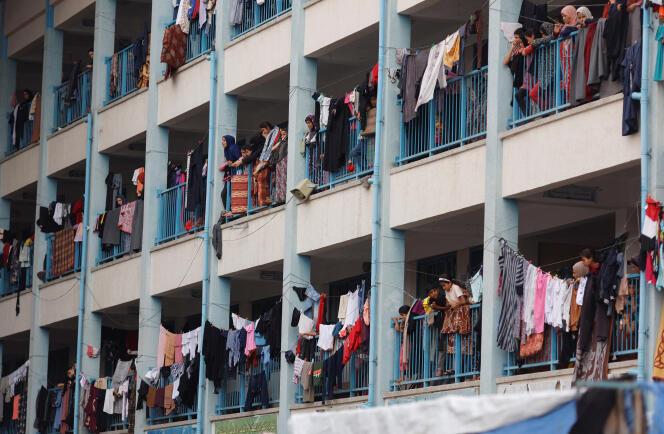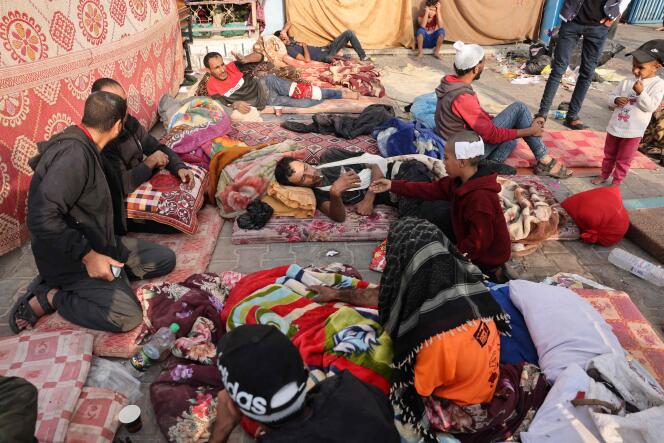


Everywhere, people have to queue. For toilets, for drinking water, to make sure they get a piece of bread during the day. The schools, clinics and centers run by UNRWA, the United Nations agency in charge of Palestinian refugees, are now home to the majority of displaced people in Gaza – more than 710,000 out of a population of around 2 million. Daily life is cobbled together amid crowding and sacrifices. No one has taken a shower in a long time and there is only enough water to rinse occasionally. In a video published by the agency on November 3, a man in a shirt, with an emerging beard and tired features, holds out empty containers in the middle of a crowded schoolyard in Deir Al-Balah, in the center of the Gaza Strip: "There's no more water, no more food, nothing to drink, there's no more life!"
For over a month, Gaza has been under siege and bombarded by the Israeli army, in retaliation for the bloody attack by Hamas on October 7 that left 1,200 dead and 240 hostages. Since then, more than 10,800 inhabitants of Gaza have been killed, mainly women and children, according to the local Hamas-run Ministry of Health, and "several thousand," according to the Pentagon.
"The carnage simply must stop," wrote UNRWA Commissioner General Philippe Lazzarini, in an article published in the Washington Post on November 8, reiterating his calls for an immediate humanitarian ceasefire. The UN agency's schools welcome those who have lost their homes, those who fled to the south of the Gaza Strip after the army's call on October 13 to evacuate the north or those who hope to be a little safer there than at home.
The classrooms, which are locked, have been reserved for women and children, while the open classes are reserved for men and teenagers. Each UNRWA-run institution is home to around 10,000 people, and thousands more continue to flee the fighting, which is now concentrated in Gaza City. The laundry being aired on the railings only hints at the overcrowding. There is "very little space per person. The sanitary conditions are really very bad," complained Tamara Alrifai, UNRWA's communications director, speaking from Jordan.


Because of the fuel shortage, the water desalination points are only working for one or two hours a day. "As soon as the displaced people hear the machines start up to desalinate the water, the queues become enormous. Because of this lack of access to water, we fear we are moving from a situation where people are dying in the bombardments to a public health crisis where they risk dying due to lack of hygiene." Diarrhea and stomach upsets are already widespread in schools. What's more, the public sector is slowly collapsing in this war-torn enclave: Rubbish is no longer collected and sewers are overflowing.
You have 50% of this article left to read. The rest is for subscribers only.
